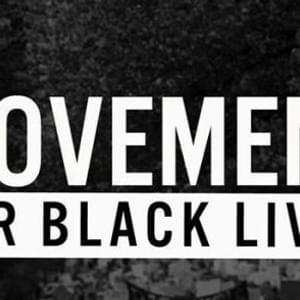Washington Post
By TIM O’BRIEN
OP-ED
My editors and I thought it was a good story: the black, one-eyed, homosexual rapist who claimed it was a case of mistaken identity. P.S.: He also walked with a limp.
The U.S. Supreme Court had agreed to review the case in its 1988 term, because it had raised an important constitutional question: Do the police have any obligation to preserve potentially exculpatory evidence?
The defendant, Larry Youngblood, had been convicted of abducting a 10-year-old boy from a church carnival and repeatedly sodomizing him. Youngblood had argued that if the police had preserved semen samples taken from the boy’s clothing, DNA tests would have shown they had arrested the wrong man.
Never mind that the tests in question weren’t ordinarily available at the time of the trial (although they are now routine). Never mind that Youngblood fit the description provided by the victim, or that the traumatized child also identified Youngblood in court as the perpetrator. Never mind that the evidence appeared so overwhelming that it took the jury only 40 minutes to convict Youngblood and send him on his way to a 10-year prison term.
The legal issue the case raised was significant; it was to resonate years later in the O. J. Simpson case and doubtless many other lesser cases. In my heart, I questioned the judgment of the public defenders who would bring such an important issue to the Supreme Court with such an obviously guilty defendant. If, as Oliver Wendell Holmes put it, hard cases make bad law, then what do bad cases make?
But public defenders Dan Davis and Carol Wittels seemed less concerned with the precedent the court might set than with winning freedom for their client. Could they possibly believe he was really innocent? Yes, without a doubt, they both said.
Defense lawyers can believe, or appear to believe, anything.
Supreme Court justices are supposed to decide cases on the basis of the law, but like all humans, they too can be influenced by the facts. And the facts in this case couldn’t have been worse for Youngblood. Moreover, he lived alone, had a history of mental illness and had had previous run-ins with the law.
As expected, the Supreme Court upheld Youngblood’s conviction, deciding his fate with exceptional speed, just as the jury had two years earlier. Only three justices dissented, with the late Harry Blackmun writing that “the Constitution requires a fair trial, not merely a ‘good faith’ try at a fair trial.”
A good story? We didn’t know the half of it. Three weeks ago Youngblood’s conviction was vacated – thrown out by the Pima County Superior Court in Tucson. While the small amount of semen that was preserved was insufficient for reliable testing at the time of the appeal, new testing procedures that only recently became available were conducted by the Tucson police. They showed conclusively what attorneys Wittels and Davis knew all along: The police really did have the wrong man. It was a case of mistaken identity.
Youngblood may have been less a victim of bad facts than of societal biases that can seep into and poison the criminal justice process. Could his race have been a factor? His multiple disabilities, mental and physical? His perceived sexual orientation? The fact that he had been accused of a horrendous offense that cried out for retribution?
There is no scientific way to quantify the effects of these illicit considerations in Youngblood’s case, nor anyone else’s for that matter. And the Supreme Court, in another case, has ruled that even a statistical probability of bias is insufficient to set aside a conviction, even a death sentence. DNA testing, by providing statistical proof of innocence (or guilt), may be the only way to effectively offset invidious biases.
Yet at every turn prosecutors are resisting the use of DNA tests whenever it might mean reopening an old case. There are now hundreds of inmates on death row who claim DNA tests would show they were not guilty of the crimes for which they were convicted. Most, perhaps even all, are mistaken. But in light of what happened to Larry Youngblood, the complaints that such tests are too expensive and time-consuming or that a jury’s verdict must be accorded finality ring hollow indeed.
The Tucson police have graciously conceded that it was “unfortunate” Youngblood spent so much time incarcerated for a crime he didn’t commit, but they say they did what they thought was right at the time. Youngblood is angry to have been robbed of “the best part of my life,” and he wants to sue the police. All agree it should not have happened.
To prevent it from happening again, courts must be receptive to any credible claim that new tests might prove the actual innocence of one who has already been convicted. Had Larry Youngblood been charged with first degree murder, he’d probably be dead now.
The writer covered the Supreme Court for ABC News from 1977 to 1999 and is now distinguished visiting professor of law at Hofstra University.


